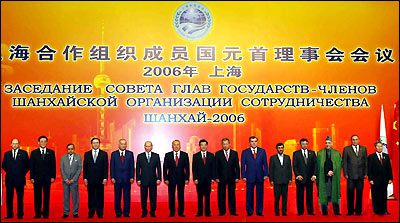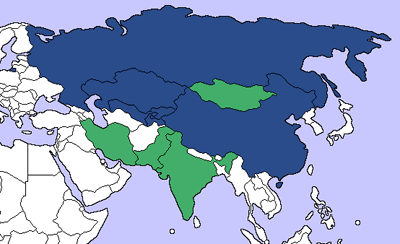Eurasian Coalition Emerging

Editor’s Note
The following text is a summary of Mahdi Darius Nazemroaya’s recent article about the formation of a Eurasian counter-alliance by Beijing, Moscow, and Tehran. The simple summary by Press TV is very short and highlights points of interest from Nazemroaya’s article from an Iranian perspective.
Press TV is an Iranian English-language international news channel that was launched in 2007 by Iran.
The article cited by Press TV is Nazemroaya’s “The Sino-Russian Alliance: Challenging America’s Ambitions in Eurasia.”

Iran-China-Russia coalition emerging
Press TV, Sept. 26, 2007.
A “Chinese-Russian-Iranian coalition” which forms the basis of a global counter Anglo-American alliance is emerging, writes Global Research.
“America and Britain, the Anglo-American axis, have engaged in an ambitious project to control global energy resources. As a result of the Anglo-American drive to encircle and ultimately dismantle China and Russia, Moscow and Beijing have joined ranks and the SCO has slowly evolved and emerged in the heart of Eurasia as a powerful international body,” according to Global Research.
Referring to “arrogance of the Bush Administration,” Global Research wrote: “The Chinese and Russians also called for the establishment of a more equitable economic and political global order instead of what American leaders and officials called the ‘New World Order’ but the Chinese and Russians consider a ‘Unipolar World.'”
Iran, India, Pakistan, and Mongolia are all SCO observer members. The observer status of Iran in the SCO is misleading. Iran is a de facto member. The observer status is intended to hide the nature of trilateral cooperation between Iran, Russia, and China so that the SCO cannot be labeled and demonized as an anti-American or anti-Western military grouping, noted Global Research.
Also, “Iran and the [Persian] Gulf Cooperation Council (GCC) are also planning on starting the process for creating an Iranian-[Persian] GCC free-trade zone in the Persian Gulf. There are also discussion about the eventual creation of a single market between Iran, Tajikistan, Armenia, Iraq, Afghanistan, and Syria.”

